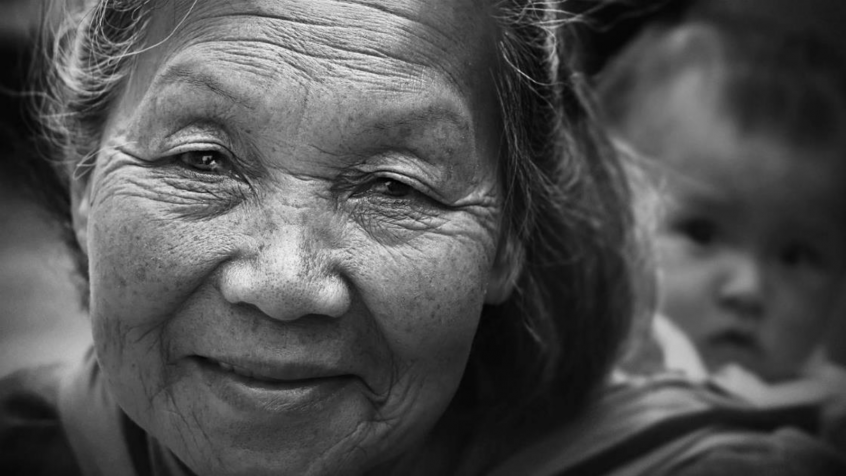KM SEETHI
Published in Global South Colloquy/Countercurrents, 8 April 2020
With the Covid-19 proliferation taking on a dreadful speed, humanity is in the throes of an unprecedented breakdown. Severe acute respiratory syndrome coronavirus-2 (SARS-CoV-2) seems to have the armoury to legitimate the Darwinian dictum—“Survival of the Fittest.” Even the world’s megatowns and megacities of affluence/abundance have gone bust. The world’s developed as well as the ‘fast growing’ economies and societies have fallen prey to the contagion-2020 more quickly than the case with the ‘poor’ and ‘backward’ economies/societies. It has already affected more than 1.3 million people across the world and the death toll is approximating a lakh if the current pace of spread continues as it were. However, the ‘poor’ and ‘backward’ countries of the Global South cannot indulge in complacency. It might be a matter of time when the pandemic proliferates with high speed, both vertically and horizontally. There are thus lessons to be learnt and unlearnt from the badly affected countries of the Global North. The United Nations Development Programme (UNDP) has warned that the “growing COVID-19 crisis threatens to disproportionately hit developing countries, not only as a health crisis in the short term but as a devastating social and economic crisis over the months and years to come” (UNDP 2020). It further said that income losses would exceed $220 billion in developing countries. Even as 55 per cent of the world’s population have no access to social protection, these losses will be carried across societies, with grave implications for education, human rights and, in the most critical cases, basic food security and nutrition. The UNDP also alerted that in these countries under-resourced hospitals and weak health systems are likely to be under severe pressure. This may be aggravated further by a spurt in cases, inasmuch as three-fourths of the people lack access to water, soap etc.
Needless to say, the worst casualty of the current pandemic is human security. The very survival of humanity is now contingent upon how each and everyone in this bio-landscape is recasting ‘security.’ SARS-CoV-2 has transformed itself into a ‘structure’ of unpredictable behaviour, in less than six months, with the medical research institutions and global health architecture groping in the dark. They are literally in the dark with insufficient data on diffusion-intensity and containment options. The prescribed ‘strategies’ are only ‘social tactics’ (in the absence of effective medical management) such as social distancing, self-isolation, lockdown etc. The aim of this social tactic is to let the pandemic virus peter out spontaneously leaving no scope for further proliferation. What is the guarantee, then, that the entire quasispecies will vanish, after two weeks or three weeks, even as the populace in hotspots take refuge in ‘quadrillage’(to use a Foucauldian term)? It is for the medical researchers to ponder over this question. Admittedly, the entire biomedical communities across the world have been working round the clock in search of a ‘solution.’ However, there is no effective remedy, yet, to fix a virus. At best, a vaccine might be developed, sooner or later, to infuse confidence that the pathogen can be ‘prevented from within.’
Towards Geronticide or Necropolitics?
Statistics of death rates in the cities of the Global North baffle many. Unlike the Influenza pandemic of 1918-19, Covid-19 tends to affect people in the ageing populace—particularly for those people who are vulnerable with respiratory, cardiac, diabetic or any other vital organ complaints. That means, each affected country should have tens of thousands of ventilators and emergency medical facilities to take care of them. This is important because the data of death rates among the ageing population show a high percentage of fatality from the upper age group. There were reports from some countries that a section of hospitals in the Global North used to discourage ageing people with Covid-19 symptoms approaching for medical care—as if they were to put up with the inevitable fate! More than 95 per cent of the deaths reported from Covid-19 infection in Europe were people in the age category of above 60. This has been the case in the US and other badly affected countries.
Notwithstanding the greater risks of critical illness and death from the coronavirus, discriminatory attitudes and actions endanger older people’s rights. A British newspaper opinion report about the economic implications of the coronavirus showed that the death of older people could actually be beneficial by “culling elderly dependents.” Ukraine’s former health minister in an interview said people above 65 were already ‘corpses’ and the government should focus its COVID-19 efforts on people “who are still alive” (Human Rights Watch 2020). Texas’s lieutenant governor was reported to have suggested that “grandparents should be willing to risk death” from Coivid-19 “in order to prop up the U.S. economy” (Etzioni 2020). Similarly, physicians at the Italian College of Anesthesia, Analgesia, Resuscitation and Intensive Care warned that it “may become necessary to establish an age limit for access to intensive care.” Another physician in northern Italy told the New England Journal of Medicine, “There is no way to find an exception,” “We have to decide who must die and whom we shall keep alive.” The approach is obviously “more utilitarian in times of catastrophe. When systems are overrun during wars and natural disasters, doctors must decide how to maximize resources for the greatest social good” (Jarvie 2020).
In the US too, some doctors were apparently unwilling “to give ventilators to people over a certain age” (Ibid). US ethicists believe that “one should save the lives of those who can do the greatest good.” Of late, there is also a consensus that “shifted from maximizing lives saved to maximizing life years. Saving one child may outweigh the ‘good’ of saving two elderly adults, according to the cold arithmetic of life expectancy” (Cha 2020). Two 88 year old patients at New York City’s Elmhurst Hospital Centre were told that neither would get a ventilator because the hospital has “not had success with them with people of advanced age.” Age-based priority is now part of official guidelines in some states for dealing with Covid-19 (Etzioni 2020). Washington Post reported that some states recommended to deny access to ventilators for older people, with access barred to those ranging in age from 65 to 85” (Ibid). This is in the context of epidemiological estimates that as many as 40-60 percent of the country’s population of 327 million could eventually become infected. According to Lee Daugherty Biddison, who is working at the Department of Pulmonary and Critical Care at Johns Hopkins Medicine, the idea is to give priority to those “most likely to live a long life after they got though the current epidemic.” Rosoff from Duke noted that part of planning for a larger pandemic outbreak in the US “should involve ensuring comfort to dying people who will go without advanced intensive care” (Cha 2020).
However, the US used to have a very strong ethical guidelines module on this question. For example, as part of emergency preparedness efforts, the Department of Health, together with the New York State Task Force on Life and the Law, had released Ventilator Allocation Guidelines in 2015, which set forth an ethical, clinical, and legal framework to support health care providers and the general public in the context of a severe influenza pandemic. The first guidelines way back in 2007 dealt with the allocation of ventilators for adults, and were among the first of their kind in the United States. The 2015 version was also a landmark in that it included two new detailed clinical ventilator allocation protocols–one for pediatric patients and another for neonates” (The United States, Department of Health, New York State Task Force on Life and the Law 2015). The Covid-19 called for a thorough revision of the ethical guidelines put in place in 2015. According to Gandhi and Patel, “public health officials should promote transparency and use their specialized knowledge and skills to ensure that public trust is maintained in a changing situation. Health care providers will look to a well-organized response that is grounded in science and ethics as the U.S. responds to COVID-19 (Gandhi and Patel 2020).
It is in this social world of hard choices of ‘life and/or death’ that Achille Mbembe’s ‘necropolitics’ gains a lot of attention. Mbembe had advanced the notion of necropolitics, way back in 2003, with a commentary in Public Culture. Then, in 2019, Mbembe came out with his book Necropolitics. Drawing insights from Foucault’s concept of biopolitics, Mbembe tried to elucidate necropolitics by exploring the genealogy of the current world, a scenario beset by growing inequality, militarization, enmity, and terror as well as by a revival of racist, fascist, and nationalist credo which went on promoting exclusion and killing (Mbembe 2019). Foucault had observed how biopolitics—power over life—can become a deadly form of power. It is not only a “calculated management of life” but also a “power to expose a whole population to death” (Foucault 1978, 1995). Mbembe argued in his earlier essay that the “ultimate expression of sovereignty resides, to a large degree, in the power and the capacity to dictate who may live and who must die. Hence, to kill or to allow to live constitute the limits of sovereignty, its fundamental attributes. To exercise sovereignty is to exercise control over mortality and to define life as the deployment and manifestation of power” (Mbembe 2013).
Christopher J. Lee argues that Covid-19 pandemic is a test of Mbembe’s contentions on necropolitics. According to Lee, “though this established set of politics has fundamentally shaped the infrastructural capacities of states to respond to the crisis, namely with neoliberal northern democracies such as Britain and the United States facing a distinct challenge in responding from years of austerity and the privatization of medical care, neither should the opportunity be lost to think differently about what is at stake. COVID-19 isn’t simply a medical or epidemiological crisis; it is a crisis of sovereignty” (Lee 2020). Christopher Lee further observed that the current pace of intervention amounts to “a return to the most basic techniques of territorial control and state power—a politics of border restriction, community management, evening curfews, business closure, public dispersal, and empty streets. Citizens are further asked to self-discipline, in a Foucauldian fashion, through social distancing. The scale, speed, and global extent of these sovereign measures appear unprecedented” (Ibid). Lee further notes: these measures “constitute a reactionary version of necropolitics concerned with the management of life and death—to reduce disease proliferation, mortality numbers, and the rate of infection more generally.” Moreover, “this reactionary stance equally indicates an unevenness of state capacity, that not all governments are able to respond equally.” The contagion-2020 has clearly showed “a long-term failure among some states to sustain public health, to sustain life, through their commitment to neoliberal agendas to end state welfare in favor of privatization.” Lee wrote that the US and British governments were particularly abominable “in governing on the basis of provisional schemes of affordable death through privatization and austerity measures, respectively” (Ibid). Going beyond Mbembe’s elucidation of necropolitics—along the scenario of war machines, suicide bombing etc—Lee writes that who gets to live and who gets to die is dependent on the goodwill, ability, and expertise of medical workers and others directly engaged with the situation. The power to dictate who may live has been outsourced and increasingly privatized, available only to those who can afford it” (Ibid). Lee’s elaboration of necropolitics has implications for the fate of the older people across the world.
There are now increasing concerns expressed by human rights activists and organizations that older people who find themselves suddenly alone without control over their social milieu are in specific risks for a variety of severe, life-threatening, physical and mental health conditions. They argue that restrictions on their freedom of movement should be proportionate and not based entirely on age. Governments may have to address the risks of social isolation while taking care of health needs during social distancing. Studies already testified that older people often end up in care homes because of governments’ failure to render adequate social services for people to live independently in the community, policies that have put millions at added risk of contracting the virus because of their institutionalization. Governments should ensure continuity of community-based services so that people do not end up in institutions in the absence of other options. A report suggested that the UK government, rather than improving social care provisions for older people, at this time, has instead put on hold basic necessities for social care and services arrangements. Many community workers and physicians argue that age should not be a prime criterion for denying treatment. Public policies should guide medical personnel in decisions about allocating resources and monitor for discrimination in accessing medical services for all high-risk groups, including older people. They also argue that governments should also recognize and respond to intersecting types of discrimination (McClean 2020). Human Rights Watch reminds that “thousands of older people live in refugee and displaced people’s camps, where they face health risks from crowded conditions and limited access to health and hygiene supplies.” They must also “ensure that older refugees and displaced older people get health care, including access to national health systems and hospitals, regardless of legal status” (Ibid).
According to Bethany Brown, a researcher working on older people’s rights at Human Rights Watch, “Governments should not respond to threats to older people’s health with threats to their rights. We are all at risk if government responses to this epidemic reinforce ageist attitudes and ignore older people’s equal rights.” He underlined that older people “are disproportionately affected by COVID-19.” But they “face risks to their rights as well if governments do not take their specific experiences into account and do not actively combat age discrimination.” HelpAge expert Prakash Tyagi noted: “We are already seeing a lot of discrimination and stigma building up against older people with certain myths, doubts, and biases.” He “emphasized the importance of empathy and empowering older persons in the pandemic response to avoid unnecessary suffering from lack of food, health care and poverty.” According to him, there are 650 million older persons living in the Asia-Pacific region alone where many low and middle-income countries are struggling to meet both the health and economic needs of vulnerable groups including older persons, persons living with disabilities, women and children.” Traditional ways of working at community level may not be possible anymore and this would be “impacting severely on care for older persons especially those living alone dependent on home care and those living in nursing homes” (McClean 2020).
The pandemic Covid-19 has now clearly set a deadline for neoliberal austerity package. If the Global North countries are kissing the dust, the scenario could be much more calamitous for the Global South, if they don’t learn any lessons from others. Inasmuch as the austerity-raj is evidently dangerous for the old, poor, marginalised and excluded, particularly in the Global South, a return to the minimum-state order in the post-Covid-19 scenario would be self-defeating, if not suicidal. According to the United Nations, by 2030, older persons are projected to outnumber children under age 10 (1.41 billion versus 1.35 billion); in 2050, projections indicate that there will be more older persons aged 60 or over than adolescents and youth at ages 10-24 (2.1 billion versus 2.0 billion). Globally, the number of persons aged 80 years or over is expected to grow more than threefold between 2017 and 2050, growing from 137 million to 425 million. More importantly, two thirds of the world’s older persons live in the Global South countries, where their numbers are rising faster than in the Global North countries (United Nations, Department of Economic and Social Affairs 2017). The emerging scenario certainly calls for a more interventionist order where both the state and international institutions have mutually constitutive roles and responsibilities.
References
Cha, Ariana Eunjung (2020): “Spiking U.S. coronavirus cases could force rationing decisions similar to those made in Italy, China,” 16 March, https://www.washingtonpost.com/health/2020/03/15/coronavirus-rationing-us/
Foucault, Michel (1978): The History of Sexuality. Volume 1: An Introduction, New-York: Pantheon Books (trans. Robert Hurley).
Foucault, Michel (1995): “Panopticism,” in Discipline & Punish: The Birth of the Prison, translated by A. Sheridan, Vintage Books.
Etzioni, Amitai (2020): “Coronavirus Is Creating A Dangerous Ethical Choice For Doctors,” The National Interest, 6 April, https://nationalinterest.org/feature/coronavirus-creating-dangerous-ethical-choice-doctors-141277
Gandhi, Rupali and Angira Patel (2020): “What if Two COVID-19 Victims Need Ventilators and Just One Is Available?” Scientific American, 16 March, https://blogs.scientificamerican.com/observations/what-if-two-covid-19-victims-need-ventilators-and-just-one-is-available/
Human Rights Watch (2020): “Rights Risks to Older People in COVID-19 Response: Combat Ageism; Ensure Access to Health Care, Services,” 7 April https://www.hrw.org/news/2020/04/07/rights-risks-older-people-covid-19-response
Jarvie, Jenny (2020): “Ethical dilemmas in the age of coronavirus: Whose lives should we save? Los Angeles Times, 19 March, https://www.latimes.com/world-nation/story/2020-03-19/ethical-dilemmas-in-the-age-of-coronavirus-whose-lives-should-we-save
Lee, Christopher J. (2020): “The necropolitics of COVID-19,” Africa Is a Country, 1 April, https://africasacountry.com/2020/04/the-necropolitics-of-covid-19
Mbembe, Achille (2003): “Necropolitics,” Public Culture 15 (1): 11-40 (trans. Libby
Meintjes, available at https://muse.jhu.edu/article/39984#FOOT1.
Mbembe, Achille (2019): Necropolitics, Durham/London: Duke University Press (trans. Steve Corcoran).
McClean, Denis (2020): “COVID-19: Battling stigma and discrimination against older persons, UN Office for Disaster Risk Reduction (UNDRR PreventionWeb, 3 April, https://www.preventionweb.net/news/view/71195
Pele, Antonio (2020): “Achille Mbembe: Necropolitics,” Critical Legal Thinking, 2 March, https://criticallegalthinking.com/2020/03/02/achille-mbembe-necropolitics/
Sills, Ben and Laura Millan Lombrana (2020): “Spanish Doctors Are Forced to Choose Who to Let Die,” Bloomberg, 26 March, “https://www.bloomberg.com/news/articles/2020-03-25/spanish-doctors-forced-to-choose-who-to-let-die-from-coronavirus
The United States, Department of Health, New York State Task Force on Life and the Law (2015): Ventilator Allocation Guidelines, https://www.health.ny.gov/regulations/task_force/reports_publications/docs/ventilator_guidelines.pdf
UNDP (2020): “COVID-19: Looming crisis in developing countries threatens to devastate economies and ramp up inequality,” 30 March, https://www.undp.org/content/undp/en/home/news-centre/news/2020/COVID19_Crisis_in_developing_countries_threatens_devastate_economies.html
United Nations, Department of Economic and Social Affairs (2017): World Population Ageing 2017 Highlights, New York: UN,https://www.un.org/en/development/desa/population/publications/pdf/ageing/WPA2017_Highlights.pdf



